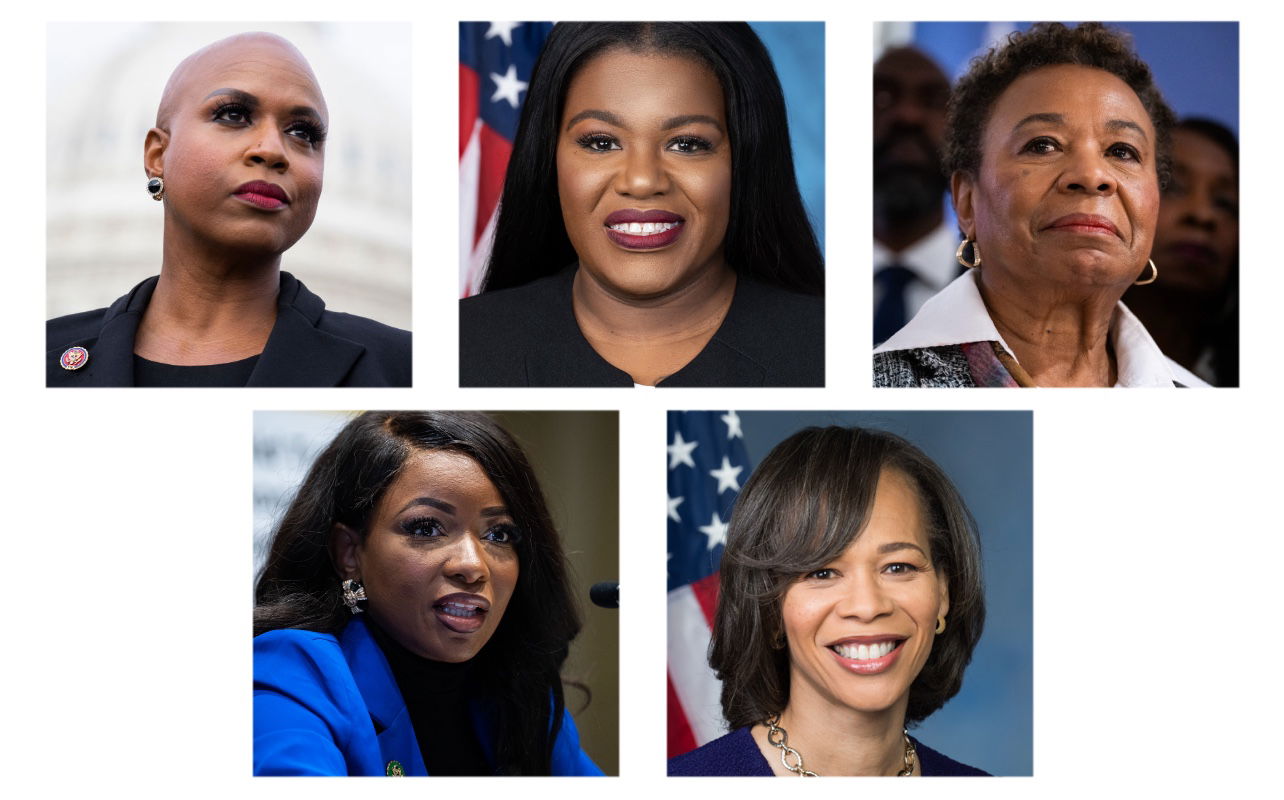
March 11, 2024
5 Black Women Who Are Shaking Up Politics And Paving The Way For Change
Black women have been making power moves in politics for the last 60 years, going back to 1968, when Shirley Chisholm became the first Black woman to be elected to Congress.
Black women have been making political power moves for the last 60 years, going back to 1968, when Shirley Chisholm became the first Black woman to be elected to Congress. Since then, several Black women have followed in her footsteps, making waves in the political arena.
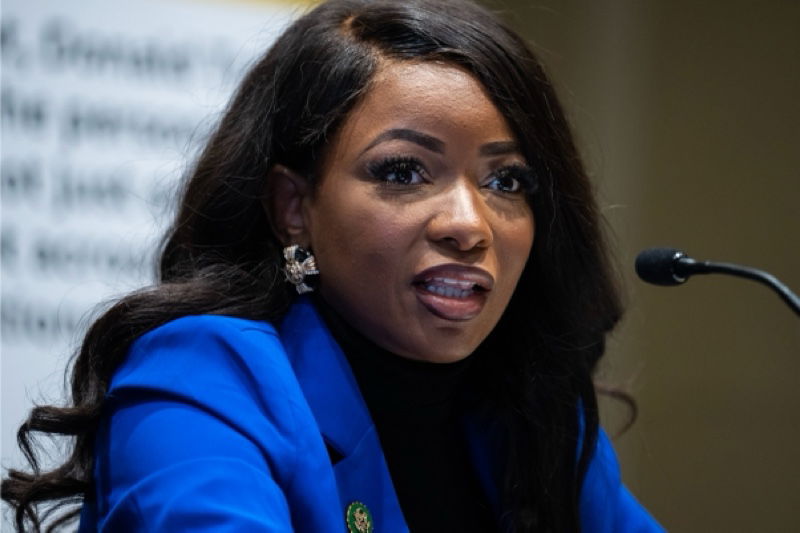
1. Jasmine Crockett
Jasmine Crockett, a freshman congresswoman from Dallas, has been using her social media platforms to make an impact and control her own narrative. According to the Texas Tribune, Crockett’s online reach is bigger than every other Texas Democrat except for Joaquin Castro, the brother of one-time presidential candidate Julian Castro. Crockett’s outspoken nature has garnered a few viral moments, like a clip of her remarking that Donald Trump kept boxes of classified documents in the Mar-a-Lago bathroom. Crockett said, “These are our national secrets, looks like, in the sh*tter to me.”
That off-the-cuff clip went viral on social media, notably Reddit and TikTok; one user’s edit of the clip, set to music, amassed over 8 million views on the app. Rep. Jamie Raskin (D-Maryland) told the Tribune that Crockett uses her training as a lawyer on social media uniquely, combining that with a down-home Texan charm. Crockett now holds the seat that her deceased predecessor, Eddie Bernice Johnson, a legend in Texas politics in her own right, occupied before her retirement. Crockett’s fire on the floor is partly owed to her insistence that she is not looking to stay in Congress long-term, and it comes through in how she approaches speaking on the Congressional floor. Olivia Julianna, a 21-year-old Texan and political activist, summed up Crockett’s appeal to younger voters, saying, “That’s why people respect her so much, because she says what a lot of people are thinking, but they don’t have the platform to say.”

2. Rep. Cori Bush
Rep. Cori Bush (D-MO), another Black woman unafraid to say what she thinks, garnered praise after winning the right to represent St. Louis’s first district in 2021 after coming to prominence as a Black Lives Matter activist. Bush seems more idealistic than Crockett, unafraid to go it alone even if she has no backup. As part of the “Squad,” the nickname for Bush, Rep. Ayanna Pressley (D-Mass), Rep. Alexandria Ocasio-Cortez (D-NY), Rep. Rashida Tlaib (D-MI), and other more progressive members of Congress, Bush can lean on at least one of the others for support, or support them in their hour of need.
As Axios reports, Bush and the other members of the Squad are pushing for President Joe Biden to take more decisive action on Palestine. Bush has been one of the loudest and most consistent voices calling for a permanent ceasefire instead of the rebranded pause the Biden-Harris administration is promoting. That call extends to the guest Bush invited to the State of The Union Address, Intimaa Salama, a Palestinian dentist from St. Louis. Salama has had many members of her family killed during Israel’s bombing of Palestine.
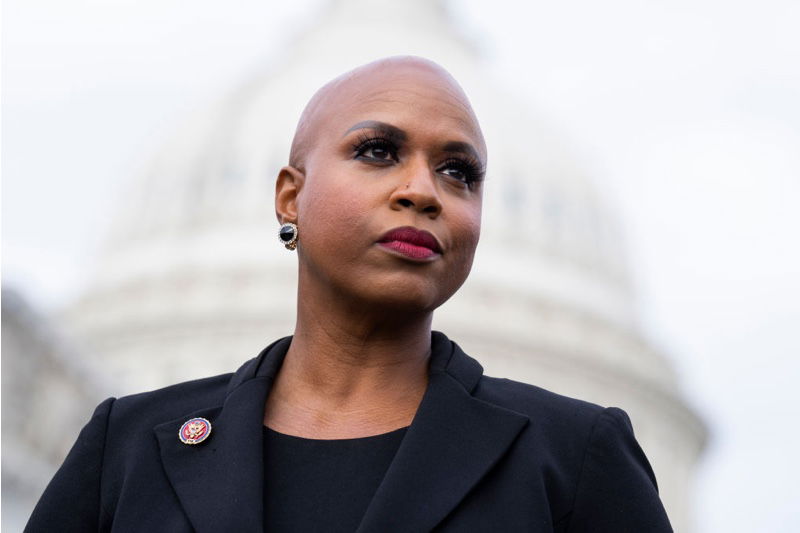
3. Rep. Ayanna Pressley
Pressley made history in 2018 when she became the first Black woman elected to represent the State of Massachusetts in Congress. Her win was not determined by her policy platform but her grassroots outreach in the 7th District, the only one in the state that is majority non-white. Northeastern political science professor Costas Panagopoulos told News at Northeastern that Pressley “won by cultivating a constituency that was looking for new leadership and new leaders.”
Panagopoulos said, “What’s more, she energized the kinds of voters—minorities and young people—who don’t typically vote in large numbers, and the outcome shows us they did.”
Pressley also used her State of the Union guest invitation to call attention to the fact that debt relief is a racial and gender justice issue by inviting Priscilla Valentine, a teacher who had served in Boston Public Schools for several years. Pressley told WBUR, “Two-thirds of this $1.7 trillion crisis are on the shoulders of women, and it’s [also] a racial-justice issue because Black and brown students borrow and default at higher rates.” Pressley also criticized Walgreens for closing a predominantly Black and Brown neighborhood pharmacy in Roxbury. In her statement to the House Speaker, Pressley said, “When a Walgreens leaves a neighborhood, they disrupt the entire community, and they take with them baby formula, diapers, asthma inhalers, life-saving medications, and, of course, jobs. These closures are not arbitrary, and they are not innocent. They are life-threatening acts of racial and economic discrimination.”
Pressley continued, “That is why I joined with Senators Markey and Warren to demand answers from Walgreens’ CEO. Why was there no community input? No adequate notice to customers? And no transition resources to prevent gaps in health care? Shame on you, Walgreens.”
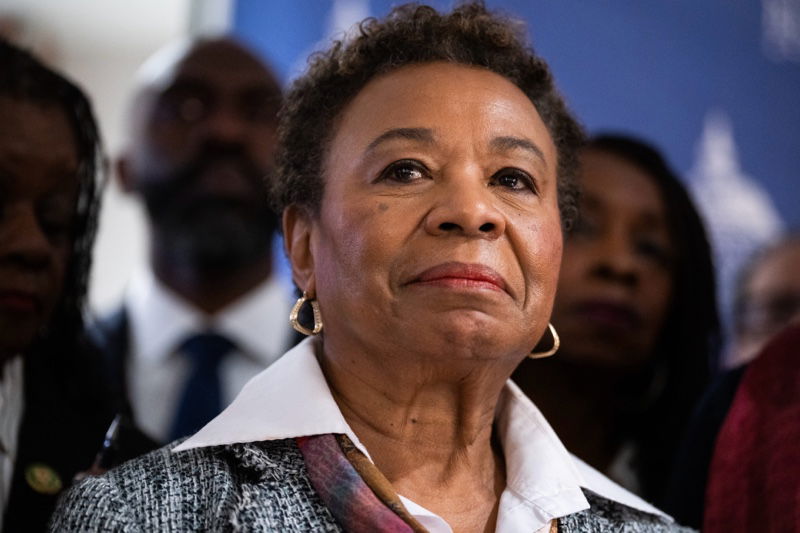
4. Rep. Barbara Lee
Rep. Barbara Lee (D-CA) has been a stalwart progressive in the State of California for many years, most clearly evidenced by her staunch opposition to the 2001 Iraq War when many, even other liberals, were busy beating the drums of war. According to Esquire, Lee’s response to President George Bush’s request for an open-ended request for Authorization For The Use Of Military Force to respond to 911 reflected an understanding of what could happen after this moment passed.
“It was a blank check to the president to attack anyone involved in the Sept. 11 events— anywhere, in any country, without regard to our nation’s long-term foreign policy, economic and national security interests, and without time limit. In granting these overly broad powers, the Congress failed its responsibility to understand the dimensions of its declaration. I could not support such a grant of war-making authority to the president; I believe it would put more innocent lives at risk.”
Lee’s presence and her politics have reflected the inner lives of Black women, as she told the Los Angeles Times after her loss in the “jungle primary” to replace Dianne Feinstein’s seat in the Senate after California Gov. Gavin Newsom appointed his ally, Laphonza Butler, a Black woman who led Emily’s List, to Feinstein’s seat. Butler opted not to remain in the seat. Lee said, “I’ve been persistent, and every step of the way, there have been roadblocks and obstacles. But again, this is such an example of a Black woman’s life.”
Black women in California have been pushing for more representation at the highest levels of government for some time, and Lee has been a critical part of that push. Lee was among the first in Congress to call for a permanent ceasefire in Palestine. Lee told the Times that she is aware that her courage has inspired other Black women, who often tell her that they know there is a racism and sexism barrier in California politics when it comes to Black women. “So many of them would come up and whisper to me, ‘I know what the deal is.’ It’s a common conversation Black women have,” Lee said. “When you step out and do something that others didn’t think you should do as a Black woman, then you get a lot of pushback.”
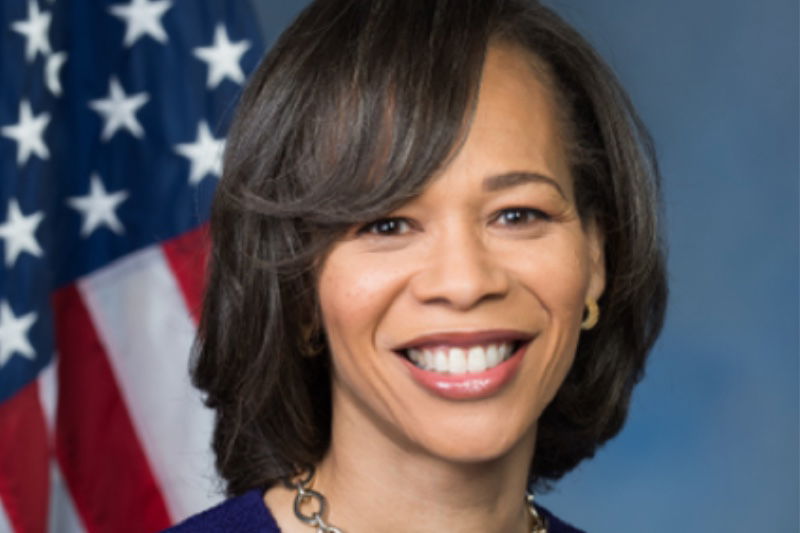
5. Rep. Lisa Blunt Rochester
Rep. Lisa Blunt Rochester (D-Delaware) has been fighting for the rights of people in Delaware for years. As a result of her tireless fight, she received a glowing endorsement from the Human Rights Campaign PAC and its president, Kelley Robinson. “Representative Blunt Rochester has spent years breaking down barriers to access and equity for Delawareans and for herself. I commend my sister in the movement for steadily advancing equity and opportunity and representing the often thankless hard work Black women do nationwide to preserve our democracy and build a better tomorrow for those who come after us. As a widow, mother, grandmother, and public servant, Lisa knows the importance of providing economic security and greater opportunities for families.”
If Blunt Rochester is elected to the Senate, she will become just the fourth Black woman to become a Senator.
Congresswoman Blunt Rochester led the sponsorship of the Jumpstart Our Businesses By Supporting Students Act (JOBS Act) along with former Rep. Bill Johnson (R-Ohio) and other colleagues, and she was named the official lead sponsor of the bill. The JOBS Act is a part of Blunt Rochester’s larger Jobs Agenda, which helps create policies aimed at expanding affordable housing, criminal justice reform, workforce training programs, and assisting supply chains.
“I was proud to introduce the bipartisan JOBS Act last year with former Representative Johnson to increase access to Pell Grants for students across the country to grow their skills and secure good-paying jobs all while reducing workforce shortages and strengthening our economy,” Blunt Rochester said in a statement in February. “Today, I am equally as proud to have stood before my colleagues to take leadership of the bill, and I will continue to work across the aisle to garner support for this critical legislation so that young people across the country are prepared to do the jobs of today and the jobs of tomorrow.”
These five Black women are involved in helping to create change and inspire more Black women to step into the political arena. They follow in the footsteps of both their immediate predecessors and in the footsteps of trailblazers like Chisholm. As demonstrated by Lee, Black women face specific hurdles on their paths to political power. However, they still keep pressing forward because they know that there are those who are watching them push up against and eventually break the glass ceiling in politics.
RELATED CONTENT: Jasmine Crockett Calls Out Republican Colleague Over Biden Hunter ‘White Privilege’ Comment